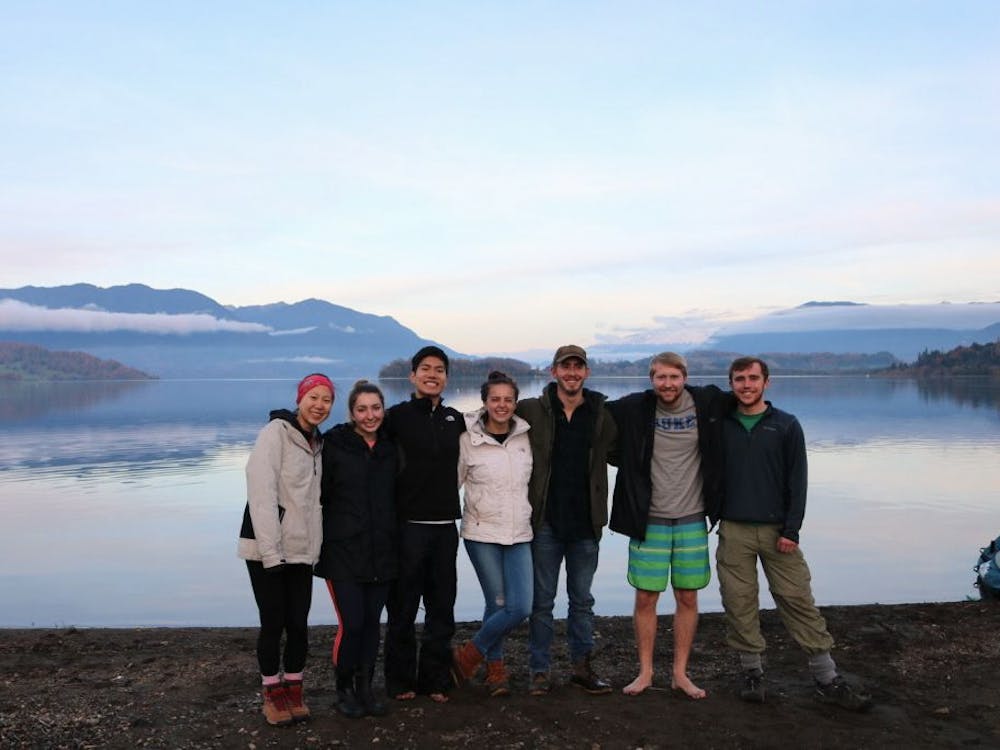Duke’s Global Travel Advisory Committee added Chile to its Restricted Regions List Nov. 7 “due to ongoing protests and civil unrest.” As a result, DukeEngage has temporarily closed applications for the 2020 program in Chile.
If the program is reopened, applications that were set to be due Nov. 15 will now be accepted until Jan. 14, 2020. There is an ongoing attempt to reopen DukeEngage in Chile with a waiver approval.
“The faculty director has applied for a waiver,” wrote Suzanne Shanahan, Nannerl O. Keohane director of the Kenan Institute for Ethics, in an email to The Chronicle. “We don’t expect word for a while yet. But if granted, the application will open.”
The program in Chile was slated to focus on the transition of a forest from logging to ecotourism by partnering with the Santiago-based Huilo Huilo Foundation, according to the DukeEngage website. Participants were to engage in conservation projects, such as measuring water characteristics of local lakes, contributing to extinction prevention of various species and building a greenhouse.
Visits to a local university in Valdivia and discussions with a local physicist who performs active volcano research were also on the program’s itinerary.
In October, Chilean President Sebastian Piñera raised metro fares in Santiago, the nation’s capital, from 800 to 830 pesos—a rise of about 4 U.S. cents—sparking conflict and unrest.
According to Chilean government technocrats, the increase was due to “a weakening currency and higher fuel costs.”
Police responded with arrests and harsh crackdowns after commuters began to avoid paying transit fares on subways and buses in retaliation. This in turn fueled widespread demonstrations, some of which turned violent. In extreme cases, citizens vandalized and set fire to subway stations, looted shops and pharmacies, and took to the streets to express their anger, resulting in multiple clashes between citizens and enforcement officers.
The protests reflect a deep-rooted tradition of economic inequality in Chile. The nation’s income gap is 65% wider than the Organization for Economic Cooperation and Development average, with the richest population receiving incomes that are 13.6 times higher than those of the poor.
In response, Piñera declared a state of emergency Oct. 18.
Curfews were established in Santiago’s larger cities, and military officials were deployed to settle the chaos in the streets.
Despite the ban, “student travel seems to be continuing” for those who are “approved for waivers of the restriction in compliance with the Global Travel Policy,” said Christy Parrish, senior manager of global administrative and travel support at Duke.
“The three undergrads who are [in Chile] under [Global Education Office] programs were granted waivers of the restriction in order to remain and finish their semester,” Parrish wrote in an email to The Chronicle.
She added that the University is monitoring the situation by consulting a variety of sources.
“We contact faculty who are from there or travel there or have done research there for decades,” Parrish said. “We engage alumni, we engage every resource you can imagine. We look at the press, we read information from the State Department and from International SOS, but then we go to all these individuals that we know.”
She noted that Patrick Duddy, a visiting senior lecturer at Duke, was formerly one of the State Department’s top Latin American specialists. He spoke to the chargé d’affaires of Chile, and they discussed the conditions in Santiago as well as breaking news in other Chilean cities during the protests.
This information is updated regularly with recommendations and then given to the provost to decide on the next steps.
“The full country restriction was based on tons of information, as much information as we could possibly gather without traveling down there and going to 15 or 20 different cities and seeing for ourselves,” Parrish said.
Students from the Fuqua School of Business and the Nicholas School of the Environment are in the process of receiving waivers for upcoming activities in Chile as well, she noted.
Parrish encouraged students with interests in traveling to reach out to the Global Travel Advisory Committee.
“My biggest hope for travelers to any destination, but particularly those that Duke has on the [Restricted Regions List], is that they reach out to my office so we’re aware of the travel or interest and can raise to the attention of the Global Travel Advisory Committee’s and Provost’s awareness, and that they take advantage of resources Duke offers to them to stay abreast of events themselves,” Parrish wrote.
Get The Chronicle straight to your inbox
Signup for our weekly newsletter. Cancel at any time.

Leah Boyd is a Pratt senior and a social chair of The Chronicle's 118th volume. She was previously editor-in-chief for Volume 117.

